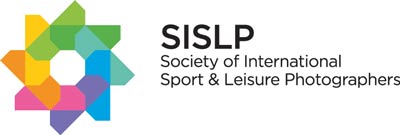articles/Equipment/nikomgamechangers-page3
Nikon D4 & D800 are they game-changers? - part 3 of 1 2 3 4 5 6
by Mike McNamee Published 01/08/2012

The automatic chromatic aberration correction worked well although some prefer the previous manual adjustment method.
D800 Sharpening
We have an action ring around which creates an A2 print using snippets of 20x16-inch prints and providing 12 variants of sharpening and presharpening.
Sample prints made this way on a variety of subject matter have been made and routinely put before delegates at the Epson Print Academy and a number of other lectures and seminars. Thus the total number of viewers now exceeds 500, so we have built up an idea of what matters and how much flexibility there is. For the tests, the set of prints to examine are a portrait, a butterfly, an insect, a landscape, a sports shot (polo), and an IR shot (mono landscape). We recently added a town scene from Paul McMullin which was shot on the D800 but nobody was able to decide on the optimum sharpening settings from the values we used. To this end we increased the power of the sharpening so that judgements could be made more easily. Most recently we have added a Paul Gallagher landscape (from a D800) and a D4 wedding shot and a high ISO D4 shot.

The location of the 'optimum' sharpening was easy to pinpoint on the landscape but very difficult on the cityscape. The marked spot for the cityscape is the maximum before artefacts appear but seemed to be contributing little to the overall appearance of sharpness.
The two sets of sharpening adjustments are:
In conjunction with these ACR pre-sharpening values we applied a Pixel Genius* high pass sharpen at 0%, 33%, 76% and 100% opacity settings on the 'sharpening' layer to give the matrix of 12 settings. The highest set (150% 3.0) is the maximum that can be applied in ACR, the sliders are banged over to the right.
* See Martin Evening's book Photoshop CS5 for Photographers, page 681 for details.
Our judgement of the optimum sharpening for the landscape shoot was between blocks 1and 2 of the second row, equivalent to amount 75, radius 1.0 and a high pass setting of 33%. The lower frequency detail in this shot was more affected by the sharpening and it was much easier to make an assessment than on the Paul McMullin townscape. For the latter the best we can say is that settings above amount 100 radius 1.3 opacity 67% should be avoided, but that for all settings below that, the outcome is practically unaffected by sharpening at all.
D4 Tests and Sharpening
Ian Cook has used his D4 at Premier Division soccer matches, the FA Cup Final, golf tournaments, track cycling and a wedding. He is working up towards his coverage of Olympic events and has a vested interest in getting very familiar with its controls and foibles! He has been testing the D4 alongside his more elderly D3. The spreads on the previous page are all Ian's shots made on his D4.
General (Ian's bit!)
Since the announcement in January of the Nikon D4 I had been eager to get my hands on one and see what all the fuss is about. I own the ageing Nikon D3 and D700, so an upgrade is now about the right time. I could have gone for the cheaper D3s, but the draw of the D4 was too much to resist. Those photographers who are shooting with the D3s might not want to pay £4,799 as they might feel the difference between them is not enough to warrant the cost of a new D4.
The controls have been improved, which is a big thing for me - one of my pet hates about the D3 was changing the focusing point when switching to portrait mode. The addition of the joystick in both landscape and portrait is a small addition, but a welcome one.
Please Note:
There is more than one page for this Article.
You are currently on page 3
- Nikon D4 & D800 are they game-changers? page 1
- Nikon D4 & D800 are they game-changers? page 2
- Nikon D4 & D800 are they game-changers? page 3
- Nikon D4 & D800 are they game-changers? page 4
- Nikon D4 & D800 are they game-changers? page 5
- Nikon D4 & D800 are they game-changers? page 6
1st Published 01/08/2012
last update 18/07/2022 16:35:43
More Equipment Articles
There are 81 days to get ready for The Society of Photographers Convention and Trade Show at The Novotel London West, Hammersmith ...
which starts on Wednesday 14th January 2026








